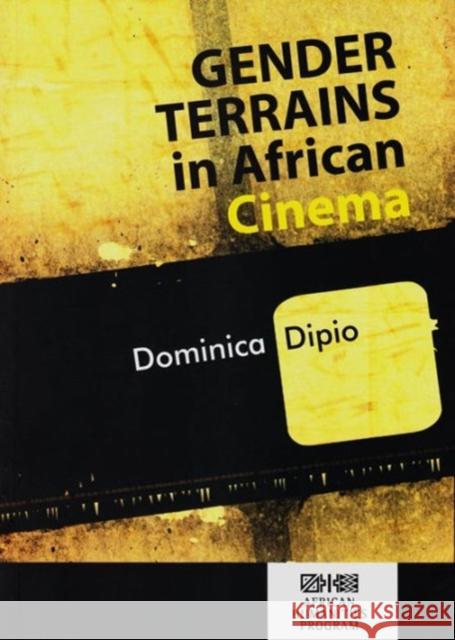Gender Terrains in African Cinema » książka
Gender Terrains in African Cinema
ISBN-13: 9781868887354 / Angielski / Miękka / 2014 / 242 str.
Gender Terrains in African Cinema
ISBN-13: 9781868887354 / Angielski / Miękka / 2014 / 242 str.
(netto: 171,26 VAT: 5%)
Najniższa cena z 30 dni: 177,99
ok. 30 dni roboczych.
Darmowa dostawa!
Attaining its identity in the 1960s, African cinema is characteristically a post-colonial art form. The first group of filmmakers and critics saw themselves, together with the political elite, as responsible for building their new nations. They came up with a series of statements which underline what cinema should be in their contexts: an instrument for educating, decolonizing the mind, and developing critical participatory viewership. To some extent, cinema continues the role of the griot (an African tribal storyteller), with a difference. Interest in this subject has led author Dominica Dipio to analyze how cinema and the filmmaker are located within the predominantly patriarchal hegemonic structure, as she addresses issues related to gender and, in particular, the representation of women in African communities. The films selected for analysis are all directed by male filmmakers that are considered representative of African filmmaking. These films span from the 1970s to the 2000s, with a comprehensive analysis of how gender relations are reflected - in the portrayal of the girl child, the young woman, the more mature woman, as well as the grandmother - vis-a-vis their male counterparts. *** "This well-written, beautifully produced book is a treasure trove of information on the depiction of women in African films directed by men. The films she analyzes treat such issues as female genital mutilation/cutting, bride price, polygamy, prostitution, women in rural and urban living, motherhood, and women's resistance. An added bonus is the author's effort to define African feminism, and the ways it is like and unlike Western feminism. Highly recommended." - Choice, Vol. 52, No. 9, May 2015 (Series: African Humanities) Subject: African Studies, Film Studies, Women's Studies, Gender Studies]











